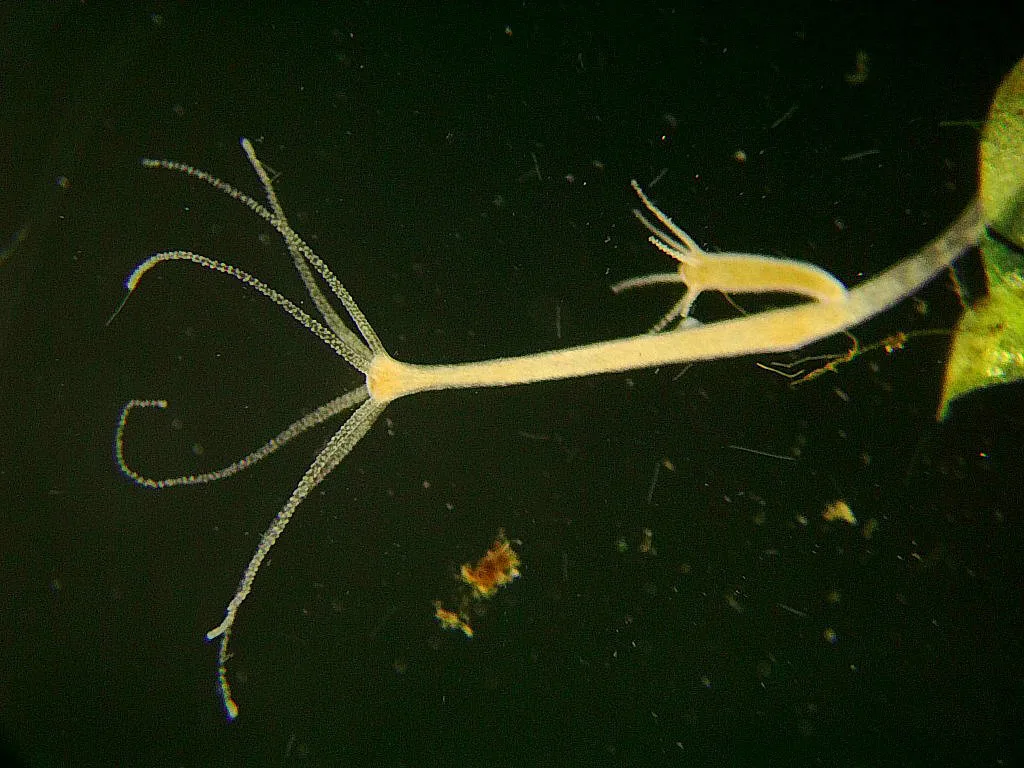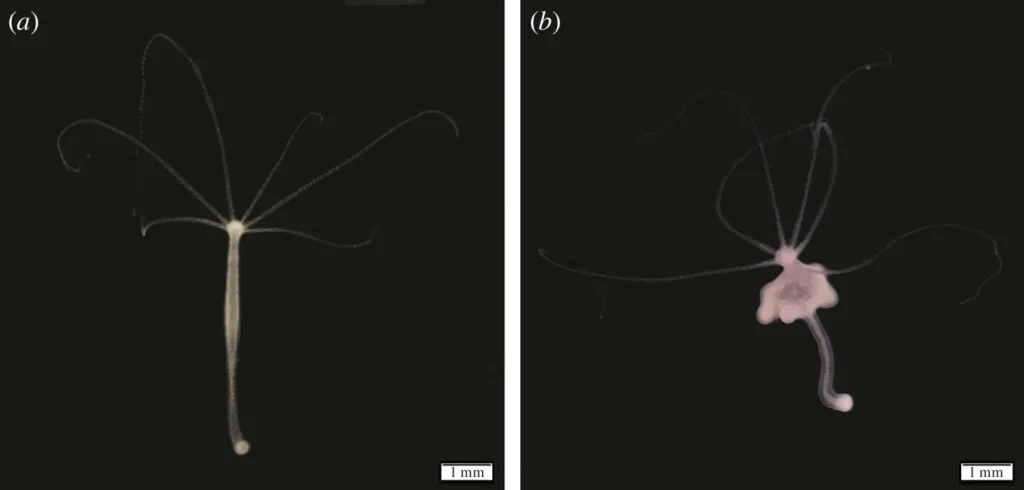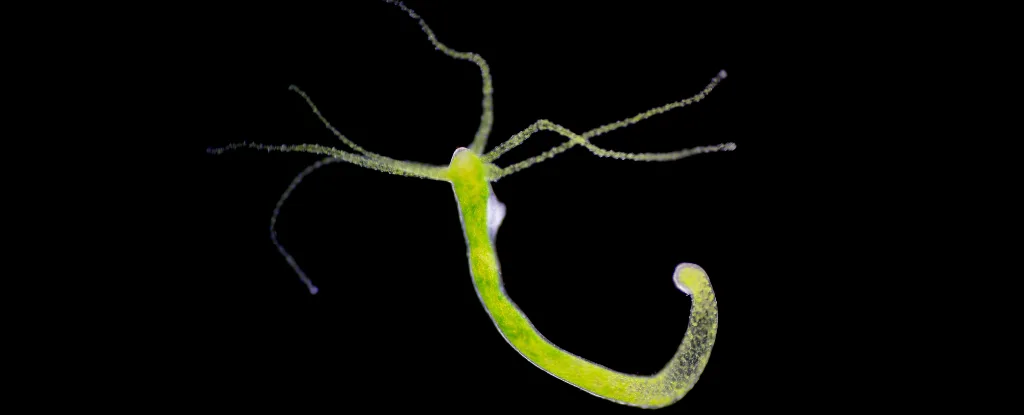Jellyfish-like creatures called hydras can develop tumors if overfed in the lab. These induced tumors can then be passed on from parent hydras to their cloned offspring through asexual reproduction.
Researchers studied this phenomenon in hydra oligactis in order to better understand the emergence and evolution of transmissible cancers. They induced tumor development over multiple generations of hydra budding/cloning.

They found the rate of tumor transmission increased over each generation when parents had tumors. Offspring of tumorous parents were 4x more likely to develop tumors than those from tumor-free parents.
Affected hydras also showed life history trait changes – increasing asexual reproduction before tumors developed but slowing budding post-tumor. This suggests an adaptation to produce more offspring pre-tumor.

The study provides the first experimental evidence of the evolution of a transmissible tumor. It improves understanding of how such cancers can emerge and their initial impacts on host organisms. More research is needed on ecosystems disturbed by human activity that could enable cancer transmission.
Source: Science Alert









